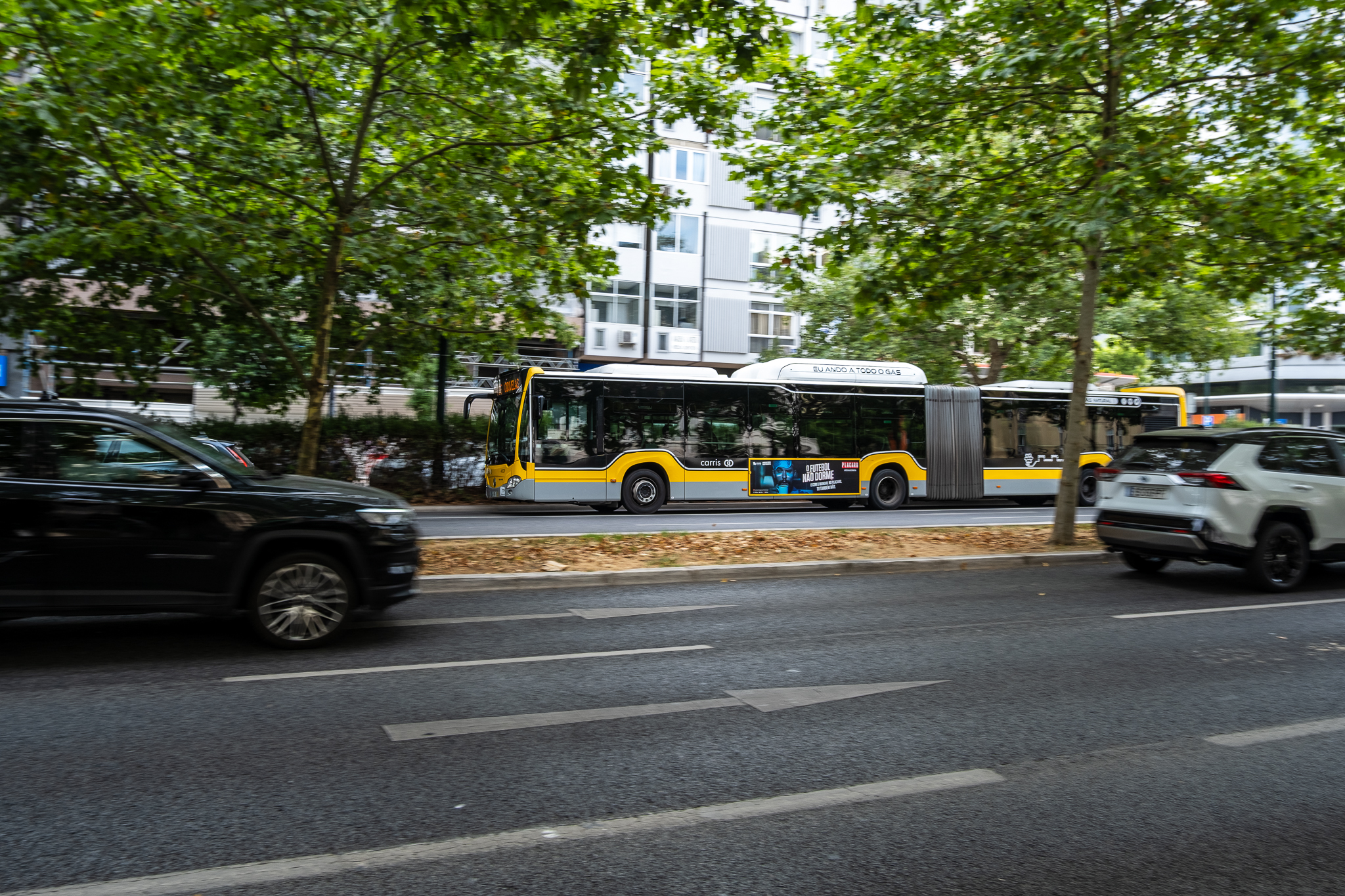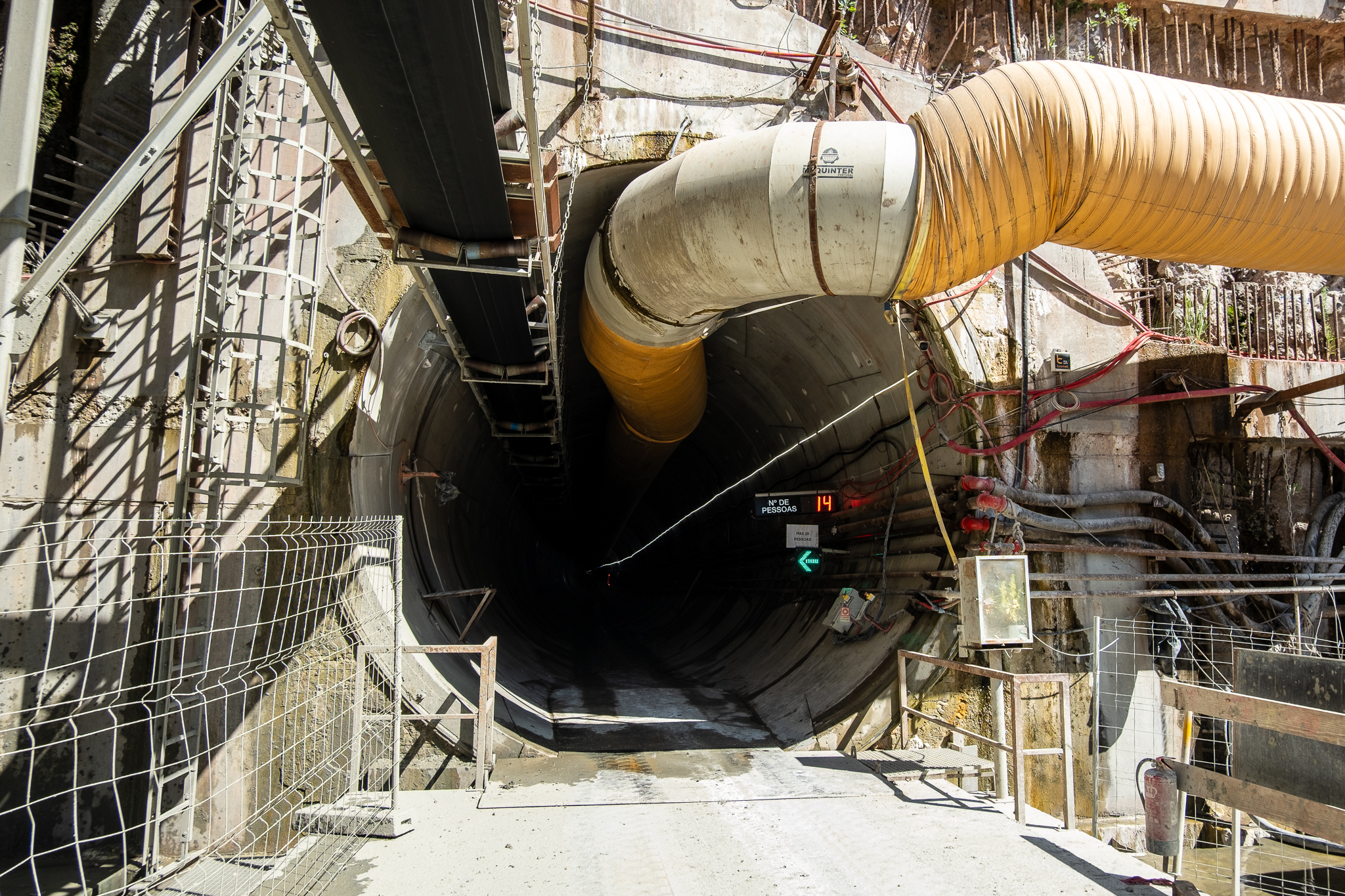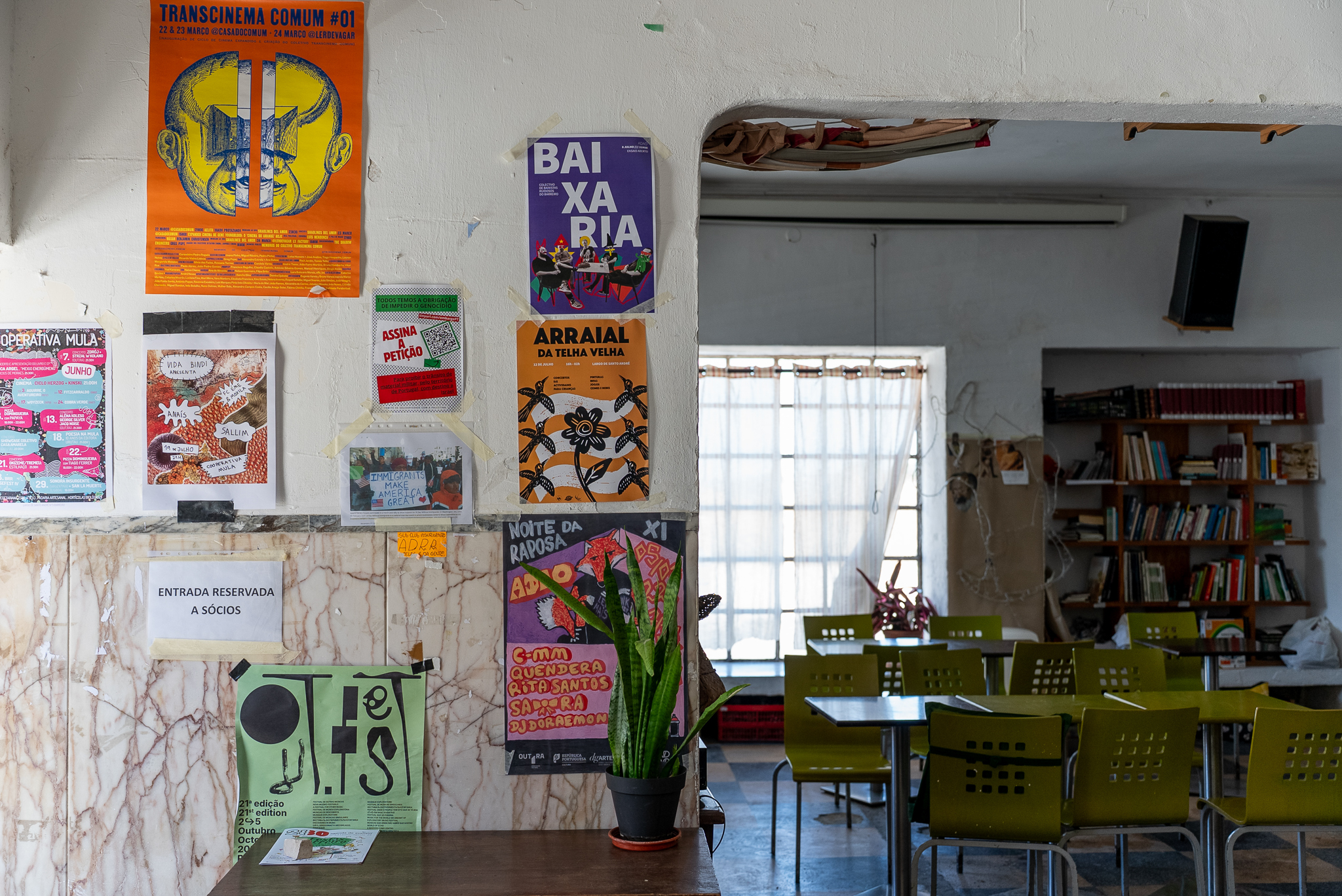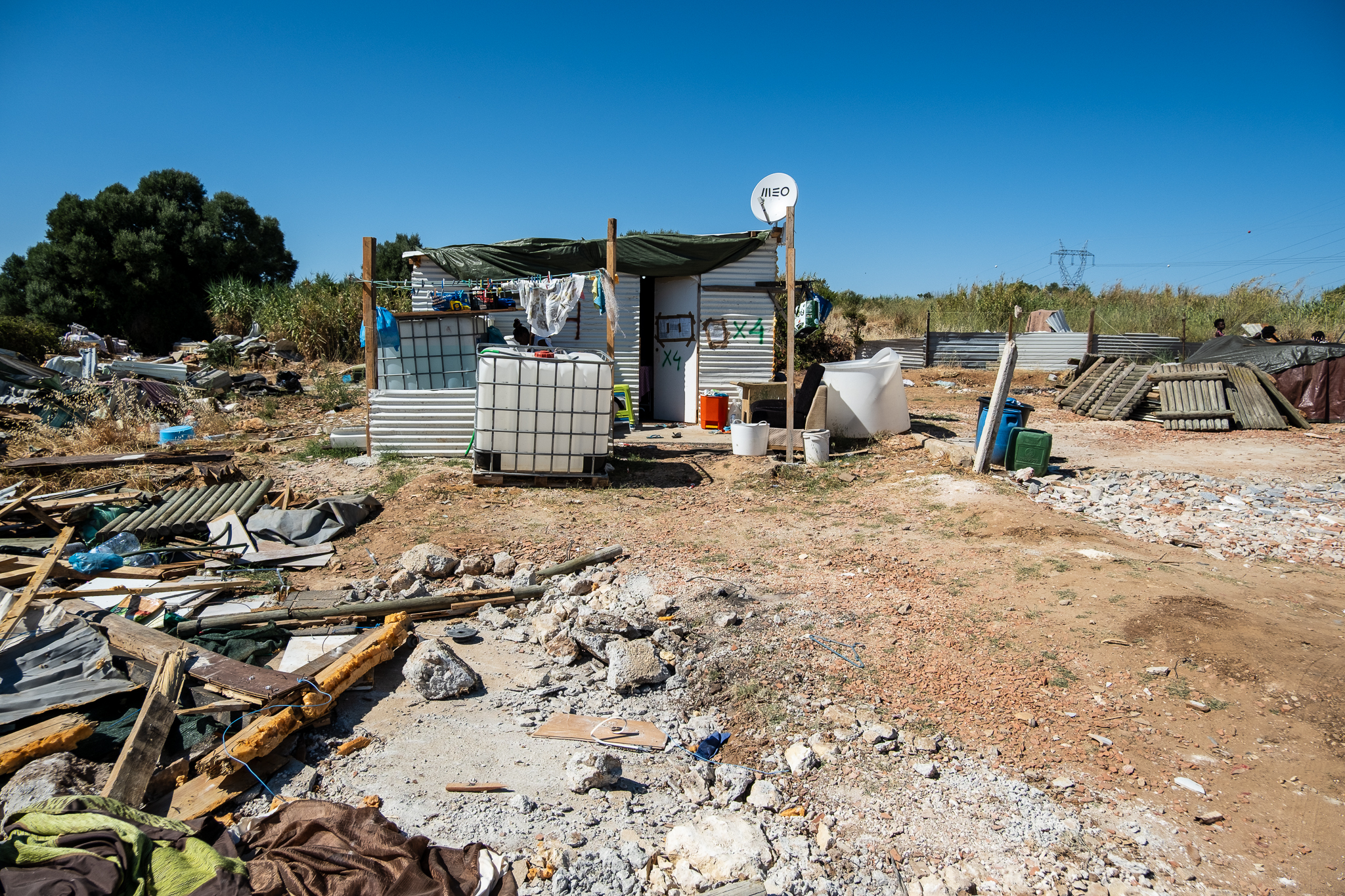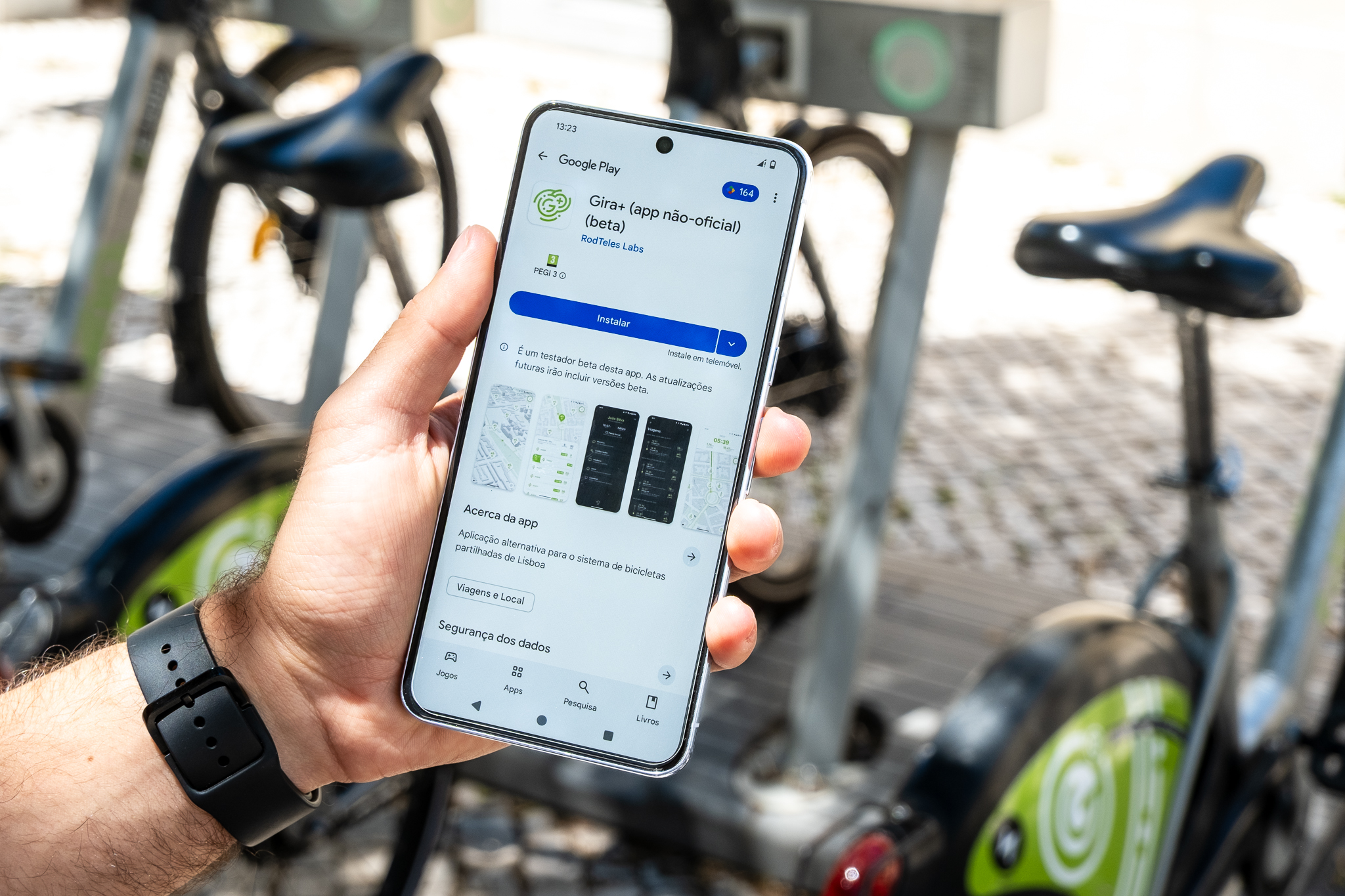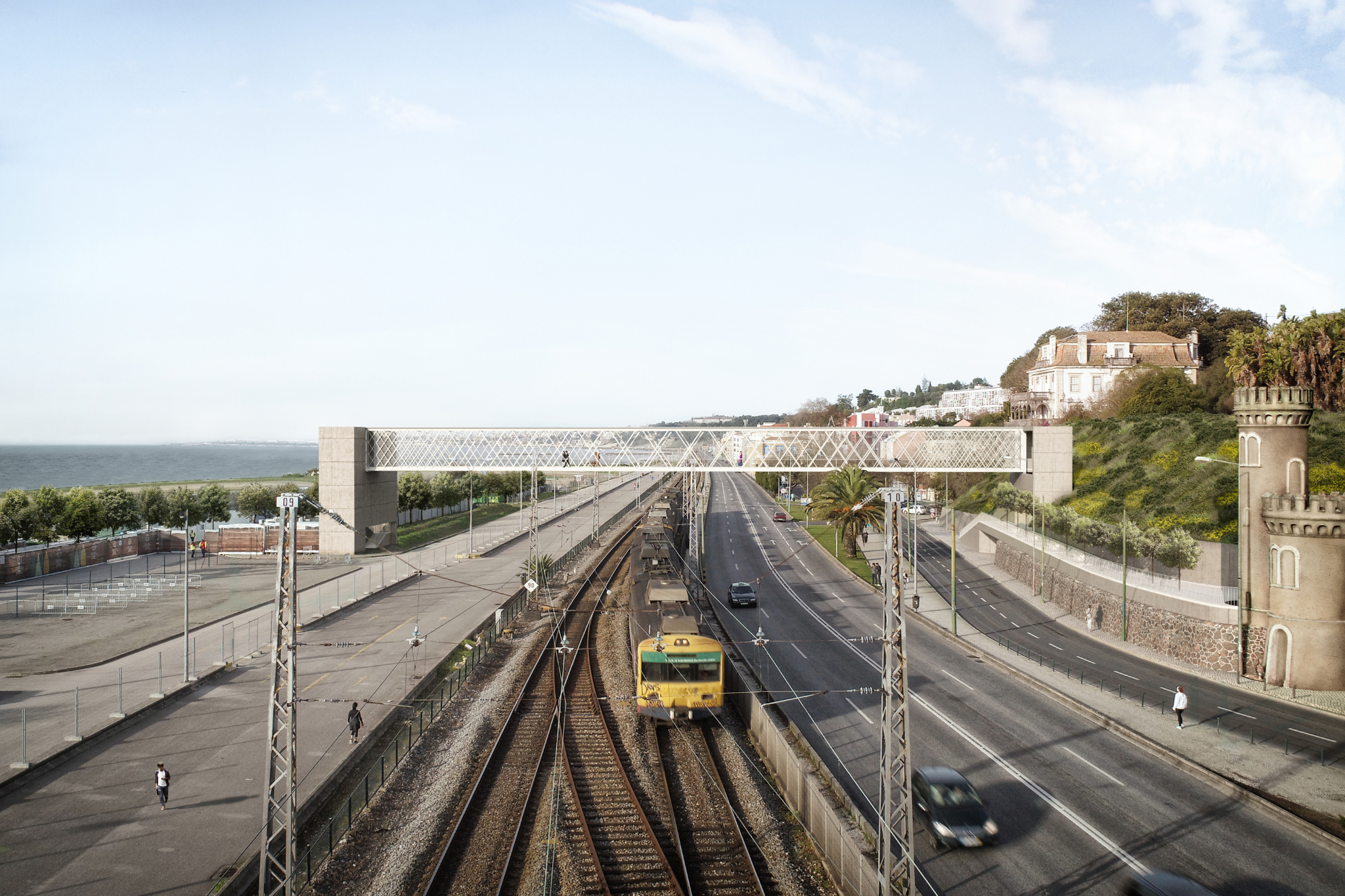The bicycle path of Avenida de Berna was, this week, debated in the Municipal Assembly following a petition. Now that the work is complete, the first petitioner is asking for a "compromise solution".
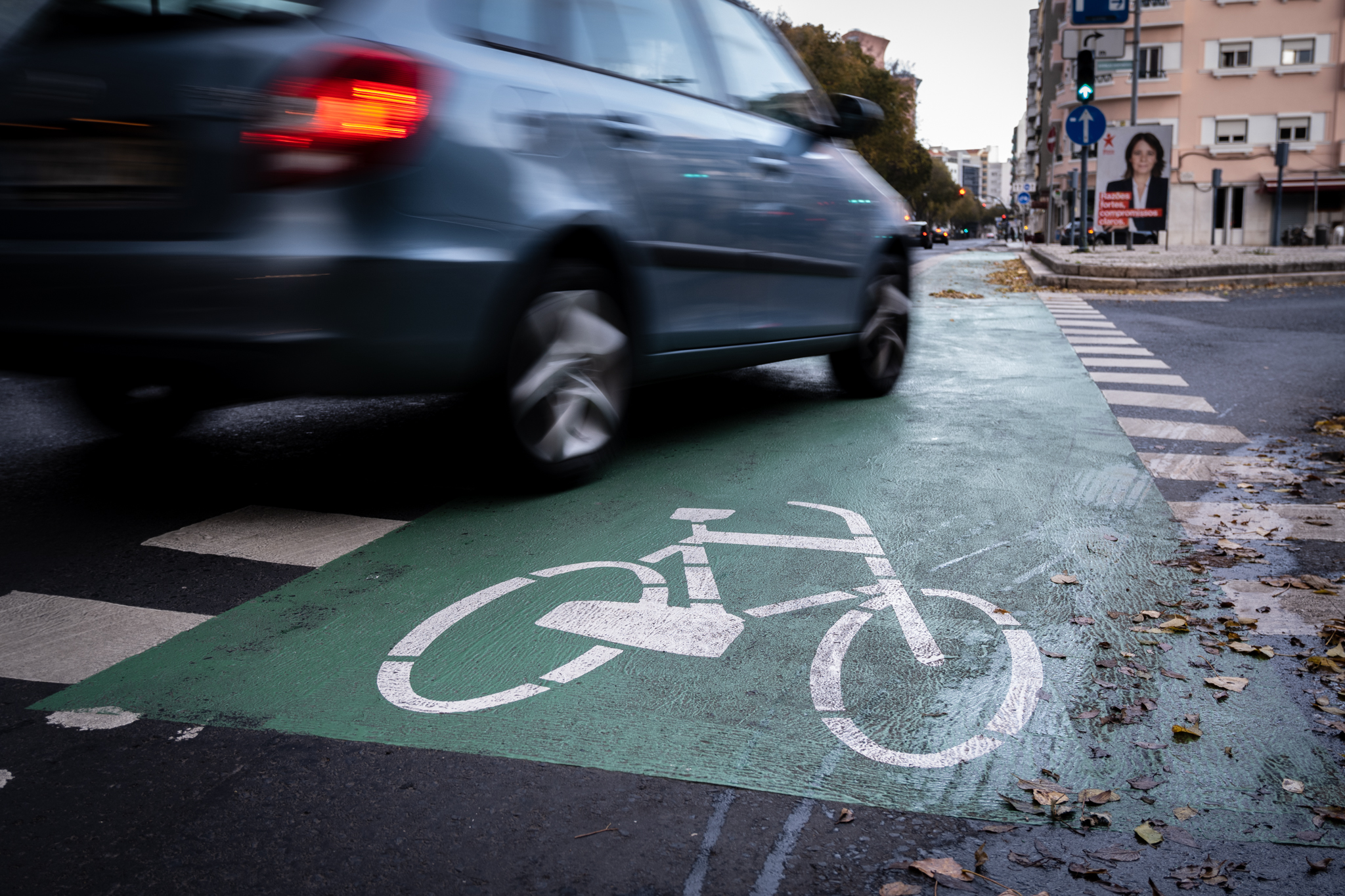
"I am totally against the bike lane on Avenida de Berna, totally against it because that was badly done"said, without hesitation, the newly elected President of the Parish Council of Avenidas Novas, Daniel Gonçalves. The declarations of the social-democrat, who also accused the previous executive of taking advantage of the moments of confinement to create bicycle paths, were made this Tuesday, December 7th, in plenary session of the Municipal Assemblywhere a petition and a recommendation for the Bern Avenue bicycle path were discussed.
Recommendation approved by majority
The petition at issue, "against the installation of the bike lane and the removal of parking on Avenida de Berna"had been delivered in March of this yearHowever, it was only in early September that the then Permanent Commission of the Municipal Assembly, dedicated to the theme of Transport, Mobility and Safety, finished its work of listening to all parties, including the then President of the Parish Council, Ana Gaspar, and the then Councilman for mobility, Miguel Gaspar, producing a report and a recommendation to the City Council.
Meanwhile, the electoral process at the end of September changed the composition of both the municipal executive and the Municipal Assembly. The recommendation, which the deputies now appreciate and vote in plenary, was, therefore, elaborated by the previous commission that dealt with the mobility issue and was led by the social-democrat António Prôa, at the end of his mandate. In this document, drafted taking into account the "special mandate transition conjuncture", the new Chamber is asked to "rigorously monitor the execution of the Avenida de Berna bicycle path and the introduction in it of the mitigation measures that were recognized as desirable in the analysis of the petition" and that "such mitigation measures, as well as other changes to the road profile related to the bike path that may be adopted, be made known in advance to the Municipal Assembly" for prior analysis. The petitioners' main concern was the loss of the hundred or so parking spaces along Avenida de Berna, which they considered detrimental to both residents and commerce.
The same recommendation - which asks the city government to improve the changes made to Avenida de Berna without reverting them - was approved by a majoritywith the votes in favor of PS, PSD, CDS, IL, BE, PCP, IL, PEV, PAN, PPM, Aliança, Livre and the independent members, the abstention of MPT and the vote against Chega.
First petitioner now suggests a "compromise solution
In an introductory presentation, Paulo Jorge Pereira, the first signatory of the petition taken to the Municipal Assembly - which had 271 validated signatures, collected through the online platform Public Petition - asked the municipal deputies and the new municipal executive "a compromise solution", that is, "the full restoration of parking at least on the side where the Church of Our Lady of Fatima is, where most of the residential buildings are concentrated". For Paul, this could be done in two ways: or with "the deviation of at least one of the senses" of the bike path, from Largo Azeredo Perdigão, to the parallel Avenida Elias Garcia, which would become a shared path; or with the "use of the Duque d'Ávila Avenue bike lane, which can be used"..
Paulo claimed that Lisbon is "an ancient city, composed of seven hills" and that "bike lanes cannot be implemented in the city" because "it's fashionable"not least because "there have been many fashions throughout history". For the petitioner, "any intervention in a consolidated space recommends caution and previous study". Consider that bike path is "detrimental to the residents because it caused the elimination of parking and the one offered on Elias Garcia does not solve the problem". In addition, "it makes no sense to reserve all of Elias Garcia for residents only, ignoring local businesses and the residents' own family members". A frequenter of the church located on Avenida de Berna, Paulo claims that "many believers travel in their own cars and are compelled to park within the church grounds to participate in the activities that the church promotes, out of the benevolence of the priest".
The first petitioner further alleged that the bike path on Bern Avenue is "poorly implemented"presenting "areas of serious conflict" with pedestrians, "many of them elderly people who go to church"and that "it's empty, it's an unused bike lane" It aims only to connect Campo Pequeno to the urban park in Praça de Espanha "in playful moments, nothing more". "Even today I pass and pass regularly on Bern Avenue, I don't see any cyclists."
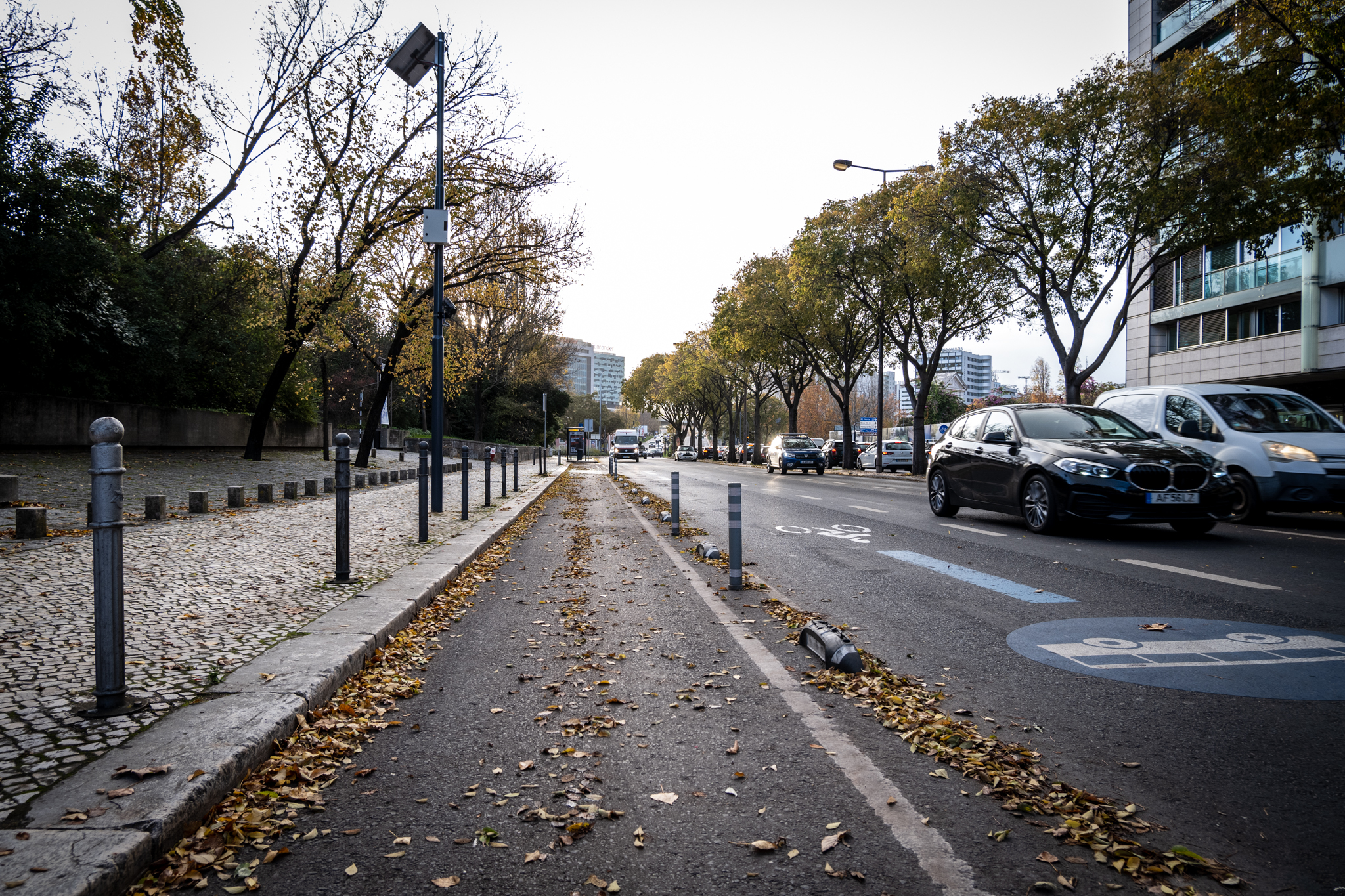
A bike path that was born crooked but can be straightened out
The Avenida de Berna bike lane became controversial as soon as the announcement came out in early March: the entire avenue was to lose its 101 surface parking spaces for the introduction of two one-way bike lanes, as well as one transit lane in each direction, which would be replaced by two BUS lanes, part of a future high-performance axis between Alcântara and Areeiro. The work was completed during the summer.
Today, the Bern Avenue bike path is a transit point for about 300-400 bicycles a day in total in both directions, according to the two automatic counters installed on the Gulbenkian block. Traffic on this artery is less than on the parallel Duque d'Ávila, but it should be noted that the cycling axis of Avenida de Berna is usually invaded by abusive parking, which may lead some people to choose a route where they are more likely to have no obstacles. The lack of a direct connection to Avenida da República and the obstacles along the route, such as the areas shared with pedestrians that force the bicycle to climb up and down the sidewalk constantly, may also justify the non-preference of many cyclists for this circulation channel.
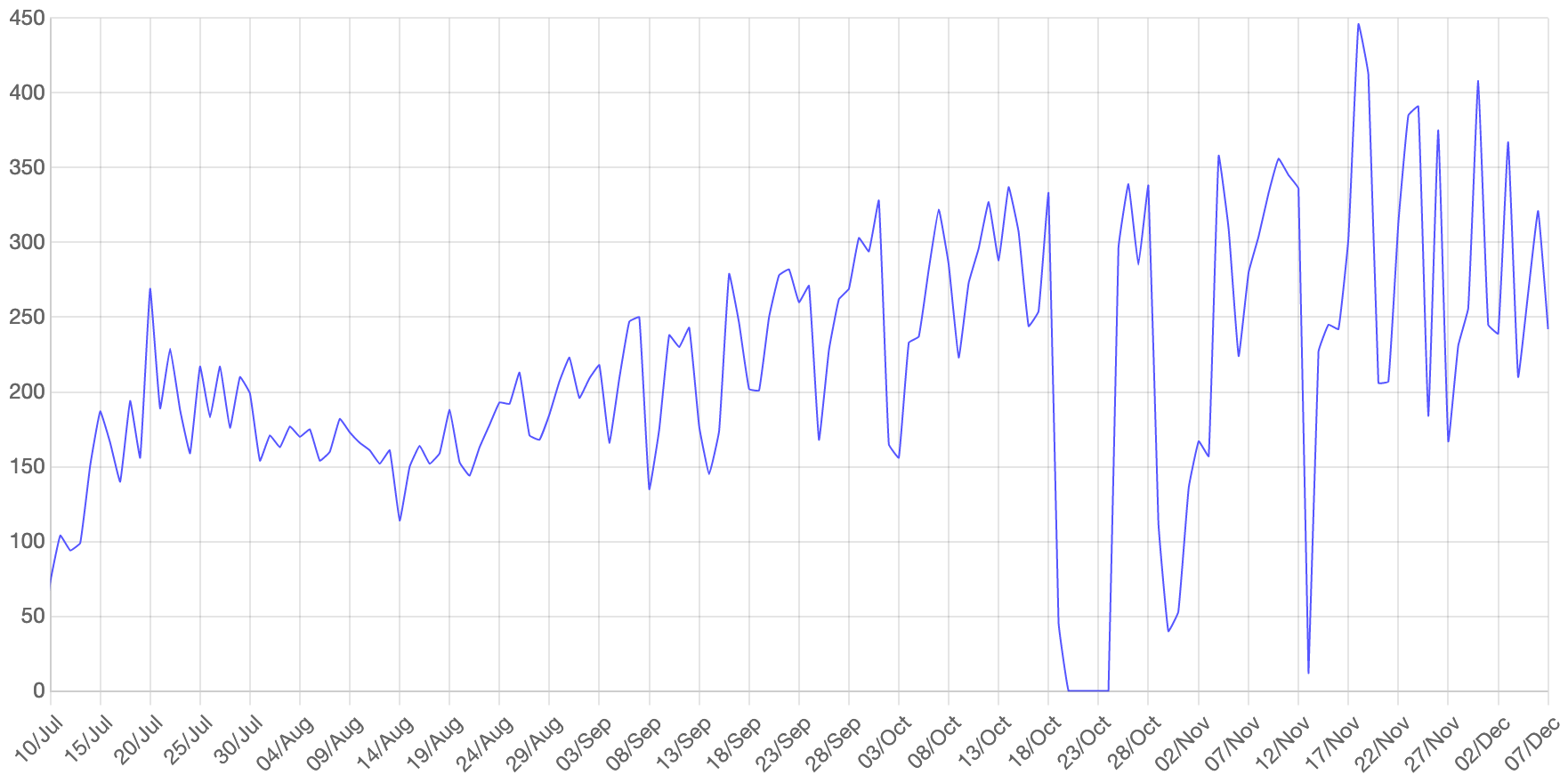
The Lisbon Municipality said, at the time of the construction, that the bike path on Avenida de Berna was only created at the present time because it was intended to eliminate parking, so that the entry and exit of vehicles did not disturb the circulation of buses. And, freeing the space reserved for parking, the municipality decided to promptly install a bike path pop-upIt could be improved later, with a background work. Bern Avenue is an axis classified in the Municipal Master Plan (PDM) as 2nd level, which means that it may not be possible to accommodate surface parking along it.
The City Hall reserved all parking spaces in the parallel Avenida Elias Garcia for residents and pointed out the existence of four underground parking lots in the vicinity with occupancy rates between 35% and 50%. In a debate promoted in March by the Parish Council of Avenidas Novas to clarify the doubts of the population, the municipality revealed which pre-pandemic data indicated that 20% of the 1072 parking spaces existing in the area of Avenida de Berna and adjacent arteries were free at night and that, on that avenue alone, nighttime occupancy was 60%.
Meanwhile, the change of city government and the current uncertainty regarding the future of the cycling network has left the bike path on Avenida de Berna unmaintained. There are several damaged segregators along the avenue, with the nails showing, presenting a real danger for cyclists and bicyclists alikeas for pedestrians and possibly motorists who invade the bike space for a quick stop. The problem of broken segregators - a result of abusive vehicle stops in the bike lane - is not new, but over time and without a repair effort, it has become more evident.
PSD against "pop-up vision" for the city
Isabel Mendes Lopes, of the Free party, was the first deputy to speak in the session on the topic of the bicycle path on Avenida de Berna. She pointed out that "in the last few years, Lisbon has taken the first steps towards becoming a true 21st century city" in several areas, including mobility, "even if at a slower pace than desirable, in our opinion". For Livre, Lisbon's cycling network "is increasingly comprehensive and complete" e "must reach the entire city and, like the road network, must have structuring axes that allow intuitive, direct and easy connections".. This is the case of Avenida de Berna, a bicycle path whose "implementation, maintenance and improvement" the Livre defends, saying, at the same time, that the construction of the cycling network must go through "participatory processes carried out in dialogue with the city and the citizens, in order to minimize the impacts on people's lives and to find the best solutions".
Isabel Pires, from BE, pointed out "a contradiction" to the right that won the elections: "on the one hand, they say yes to fighting climate change and yes to encouraging other forms of mobility, but on the other hand they say no to bike paths where they exist, and by that logic, none could practically exist". The blocist deputy acknowledged, however, that "the issues that have been raised by this petition must be taken into account" but that "these can't always be the barriers to continuing and deepening the expansion of the bikeway network. Finding balances is important, but we also consider it very important to maintain this trajectory designed for mobility".
Silvino Correia, for the PS, recovered the idea of a 15-minute city to say that there must be "a change of mentalities, an essential factor for the progress of our communities". Cláudia Madeira, for the PEV, pointed out that "in some cases, bicycle paths can bring some constraints, especially at an early stage, and need adaptation, but it is important not to forget the important contributions they represent in terms of mobility and the environment"and stressed the importance of public participation. For the PAN, António Valente mentioned that the bicycle path of Avenida de Berna "is an example of how the motor vehicle has assumed a position of supremacy at the expense of pedestrians and bicycles"being "inconceivable that pedestrians and cyclists should be allowed to cross and run over each other, particularly at intersections that force cyclists to climb sidewalks". António put forward an alternative: a bidirectional bike lane along the avenue.
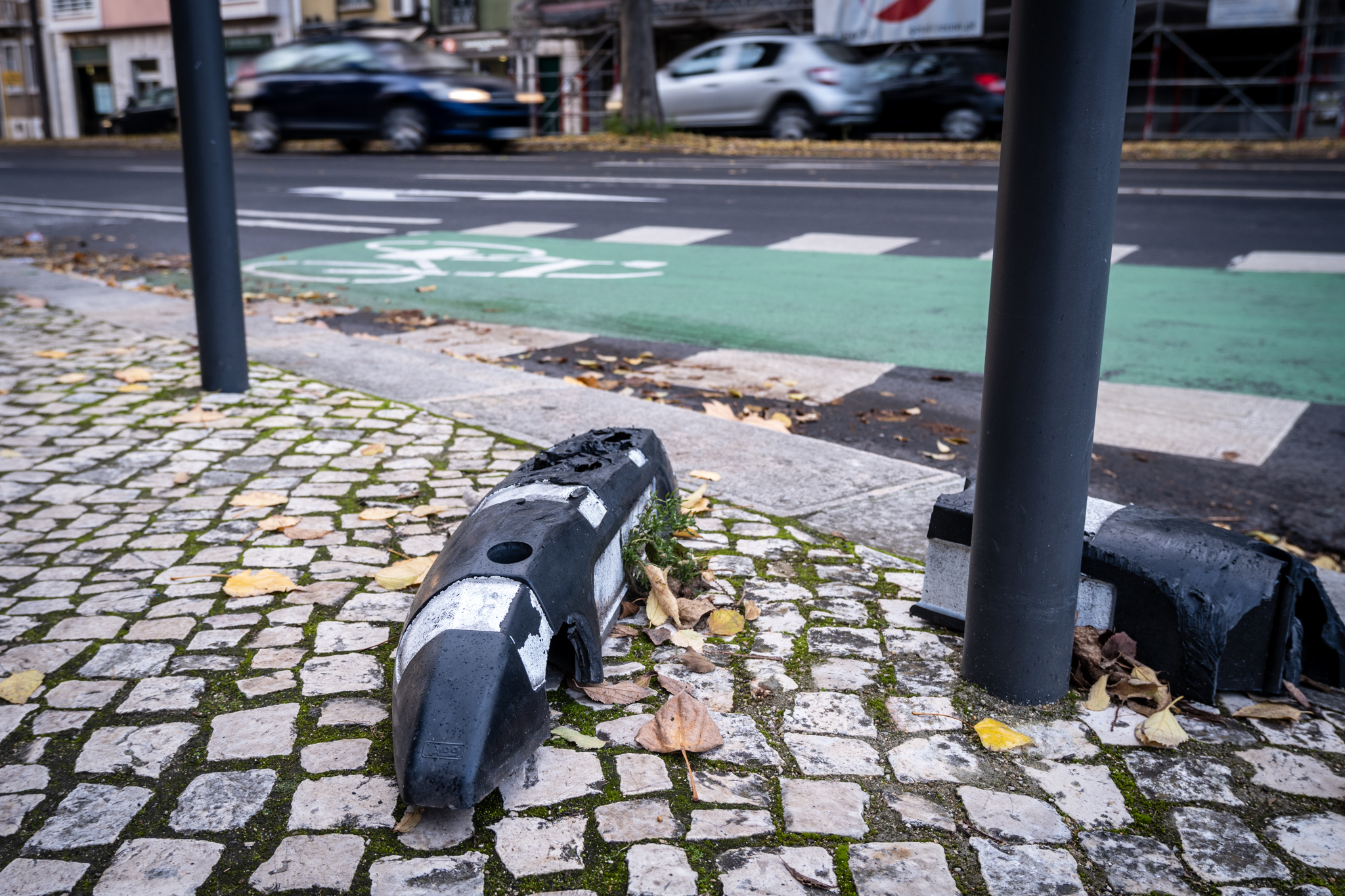
From the CDS side, Martim Freitas said that "all that remains is to evaluate the result and, if there are mistakes, to correct them". and asked for it, "as it is a controversial issue, the main stakeholders, the people of Lisbon who live and work on that artery, should be heard again".. He also mentioned that "the bike lane in question was designed because it was going to intervene to create a BUS lane, which means that the bike lane was not designed as part of any plan or network of bike lanes previously thought for the city" e reinforced the importance of thinking first "on the whole", "before moving on to a work, even if it derives from another"so that "the whole comes to make sense"He is confident that this is the philosophy of the current executive.
In the same line of thought Luís Newton, from PSD, current President of Junta de Freguesia da Estrela, commented that "today these pop-up bike lanes are the traffic circles of the past"decided by "someone who wants to do construction work just to say they have done something, regardless of the very negative impact it has on the community they are supposed to be serving". Newton pointed out that in the September elections it was decided to end the "pop-up view" for Lisbon, a city "built without any kind of planning, without any kind of structuring, without listening to those who are the main stakeholders of the community, without understanding the implications and impacts that these kinds of measures had on the functioning". The Social Democrat also responded to the BE: "The idea that someone who is against a poorly thought out, poorly structured, poorly implemented and dangerous pop-up bike lane is someone who is against the [energy and modal] transition in the city of Lisbon is yet another act of intellectual dishonesty that does nothing to further the political debate." He concluded, mentioning that pop-up bike lanes "create a bad name" around the bike paths, "a solution that is imperial for the city of Lisbon, as it is for any city in the world".
For Rodrigo Mello Gonçalves, from the Liberal Initiative, it is important to proceed with the promised survey and study of the city's bicycle paths so that "then, when this study is done and the conclusions are presented and discussed in this Municipal Assembly"if you take "the decisions that have to be taken in this matter". Patrícia Branco, from Chega, said that the party "has nothing against bicycle paths"but that "have decided to fill Lisbon with bike lanes, some of them badly thought out"and that "people cannot suddenly abandon their cars, because Lisbon has an aging population". José Inácio Faria, of the MPT/The Land Party, reiterated that the party "it's not counting bike lanes"but it is "totally against this bike path"because "we cannot accept that bike lanes exist against the safety of everything and everyone".
Fernando Correia, 2nd Secretary of the Assembly's Board, independent deputy in the PCP lists, closed the debate referring that "the new House has an obligation" to make a work of conciliation between all the parties "without continuing this war between those in favor of bike lanes and those against"a division that "favors neither decarbonization, nor Lisboners, nor politics at the municipal level". "I believe it's time for us to move on to another phase. The city needs bike paths, they are necessary. Those bike paths have to be planned, there have to be studies, and those studies have to be discussed."he said, pointing out that, in the case of Avenida de Berna, it would have been important to stipulate parking alternatives, because "those who know Elias Garcia know that it is in fact no alternative".

